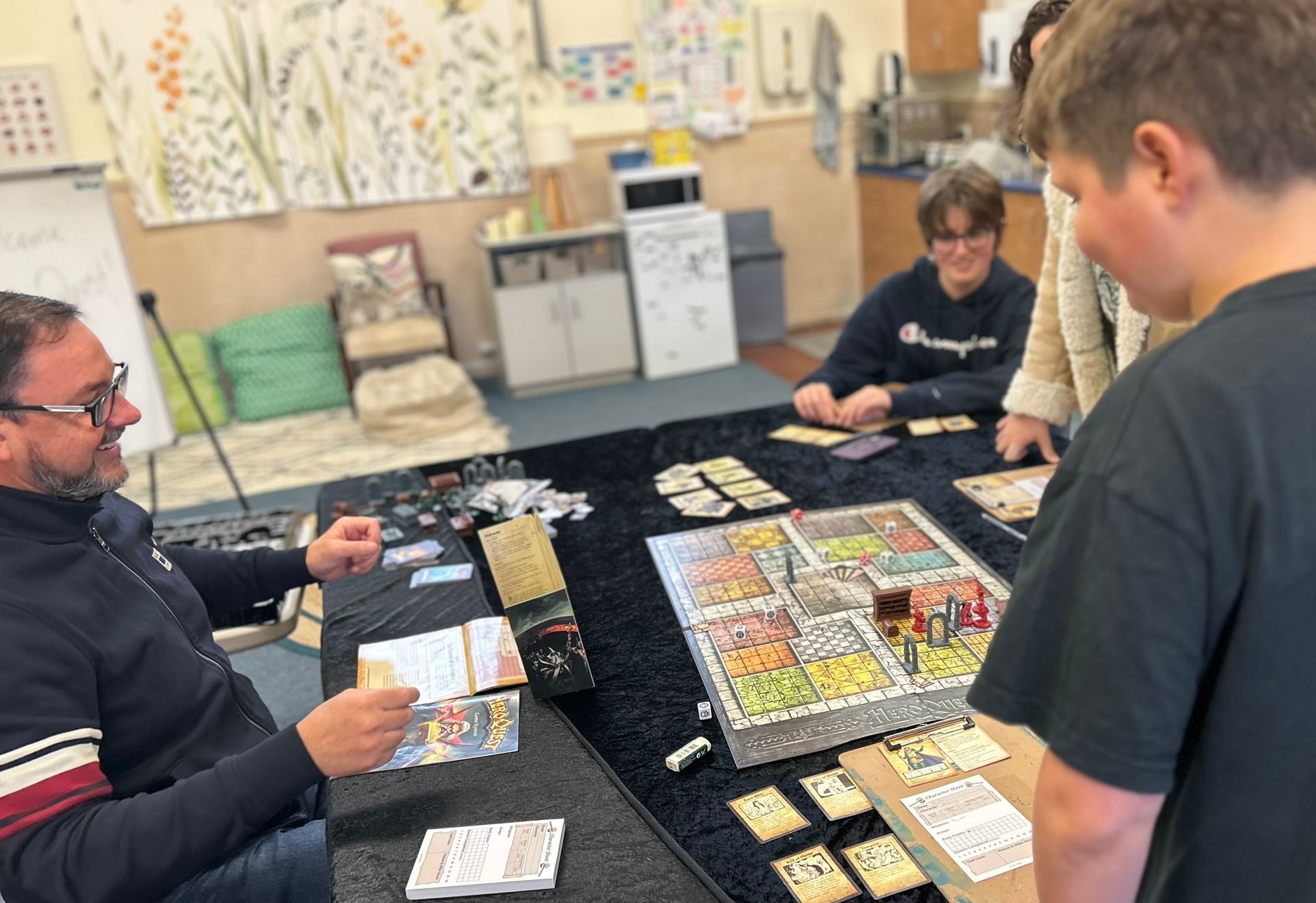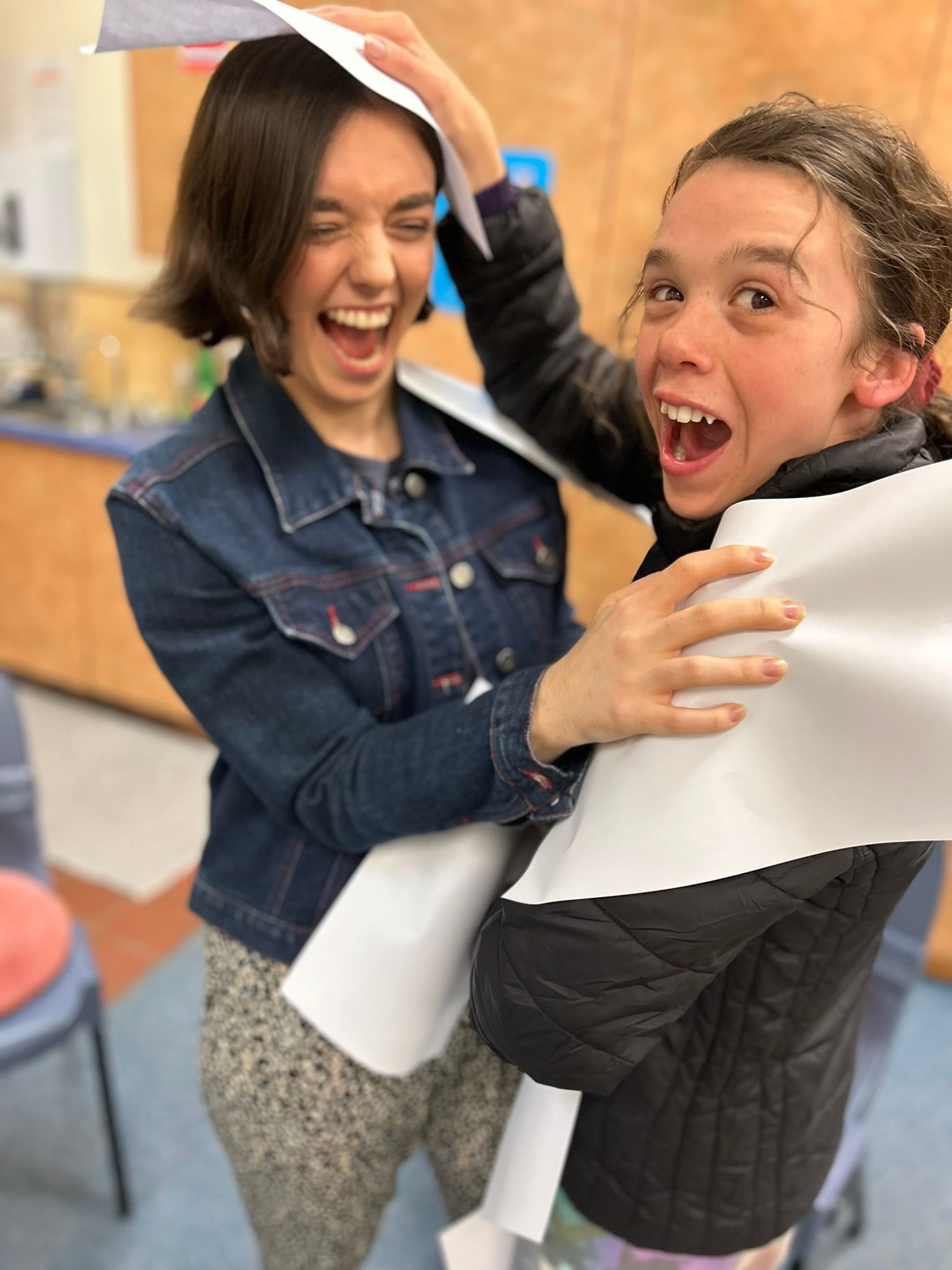Fortnightly Social Coaching for Real-World Practice in Supportive, Authentic Contexts
Research shows that learning and practising social strategies in naturalistic, group-based contexts—particularly alongside peers with similar neurotypes—can improve motivation, generalisation of skills, and social confidence.
Our social coaching programs of support focus on:
- Building skills through tailored, guided activities in a fun, group-based setting
- Offering in-the-moment coaching during real interactions, games, and activities
- Providing optional caregiver sessions and progress updates
This approach creates practical opportunities to learn and apply social skills in everyday situations, supported by evidence-based strategies.
About

What Happens in Our Social Coaching Programs of Support?
In our Social Coaching programs of support, participants build social skills in a practical, engaging, and supportive environment.
We use a variety of approaches to meet different needs and interests—this may include:
- Facilitated games, projects, and discussions tailored to the group’s interests and support needs
- In-the-moment social coaching during real interactions
- Explicit teaching and consolidation of previously learned concepts through fun, engaging activities
- Visual supports, peer modelling, role play and ongoing practice to build confidence
- Tabletop role-playing games (TTRPGs) –we also have social coaching programs that include immersive, story-driven games allowing participants to practise teamwork, problem-solving, flexible thinking, and communication
How It Works
- Group size: 4–8 participants, matched according to age and right-fit group dynamics
- Facilitators: Special Education Teacher and Provisional Psychologist, supported by experienced assistants where necessary
- Schedule: Fortnightly sessions – supports affordability and sustainable NDIS funding
- Family options: Goal-setting consultations, periodic feedback, and optional progress notes
Is it a fit?
Who it suits
- Graduates of our structured social skills programs who would benefit from ongoing coaching.
- Families wanting guided social practice in a fun, social, naturalistic setting.
- Young people who benefit from doing—hands‑on, interest‑based activities (not suited to extensive explicit teaching).
Ages
Grades 5–7
Focus:
- Joining in, sharing ideas, managing big feelings in groups.
- Flexible thinking, negotiation and teamwork.
- Noticing others and building two‑way play/conversation.
Grades 6–9
Focus:
- Friendship concepts.
- Handling unwanted interactions.
- Two‑way conversation, flexible thinking.
- Planning together, compromise and social problem‑solving.
Older Teens
Focus:
- Confidence in groups, taking initiative.
- Self-identity, self-advocating.
- Finding likeminded peers (where and how)
- Organising outings/projects and reflecting on what worked.
Young Adults (up to 30)
Focus:
- Conversation skills and collaboration.
- Social confidence in everyday contexts (study, work, community).
- Self‑advocacy, planning together and independent travel practice.
Quick answers
Our Social Coaching programs of support are structured, activity- and play-based program of support designed to create opportunities for in-the-moment coaching and authentic social motivation.
While our Social Skills Programs are also fun and activity-based, they have more explicit teaching and:
- Follow a sequential social-emotional curriculum
- Run weekly
- Include mandatory caregiver sessions
In contrast, Social Coaching programs run fortnightly, and parent sessions are optional.
Do caregivers attend?
No - these are peer groups. We offer optional caregiver consults for goal setting and feedback.

Common outcomes
- More comfort with conversations, turn‑taking and social flexibility.
- Finding like‑minded peers and a sense of belonging.
- Practical strategies families can reinforce between sessions.
- Consolidation of previously learned skills.
References:
- Crompton, C. J., Gordon, K., Hurley, E., Maras, K., Crane, L., Hanratty, J., Coughlan, B., … Fletcher-Watson, S. (2024). Neurodivergent-designed and neurodivergent-led peer support in school: A feasibility and acceptability study. Autism, Advance online publication. https://doi.org/10.1177/13623613241242036
- Koenig, K. P., DeLosReyes, A., Cicchetti, D., Scahill, L., & Klin, A. (2015). Group intervention to promote social skills in school-age children with pervasive developmental disorders: Reconsidering efficacy. Journal of Autism and Developmental Disorders, 45(11), 3615–3629. https://doi.org/10.1007/s10803-015-2517-4
- Kasari, C., Rotheram-Fuller, E., Locke, J., & Gulsrud, A. (2012). Making the connection: Randomized controlled trial of social skills at school for children with autism spectrum disorders. Journal of Child Psychology and Psychiatry, 53(4), 431–439. https://doi.org/10.1111/j.1469-7610.2011.02493.x

